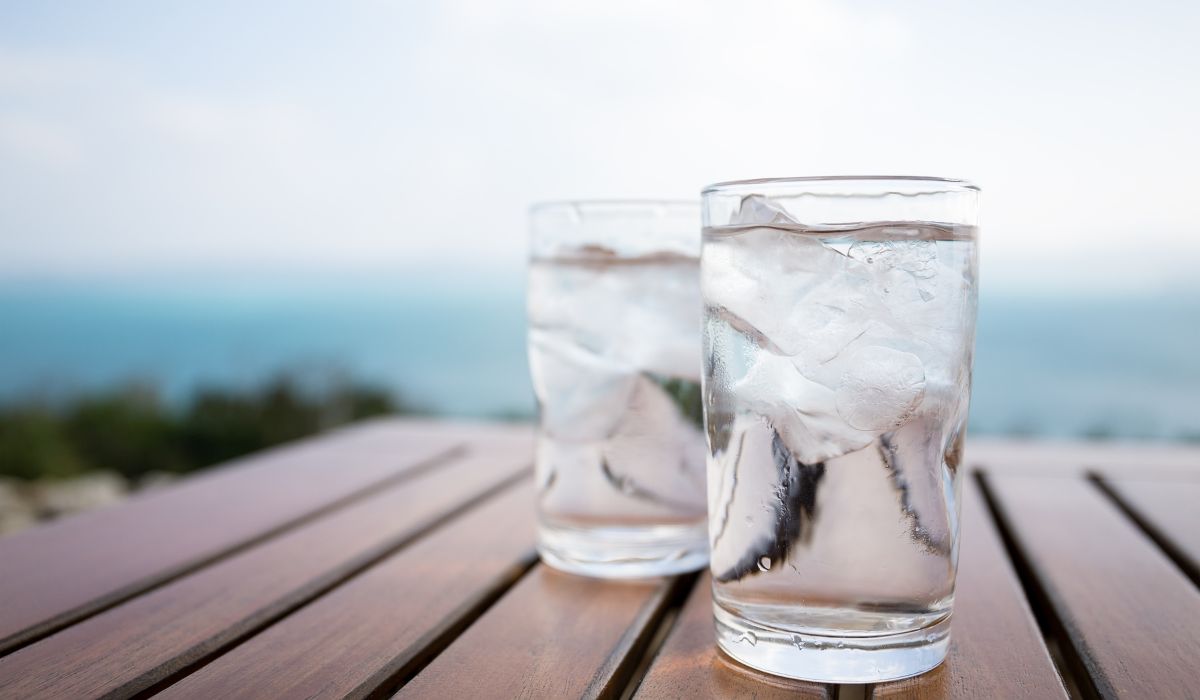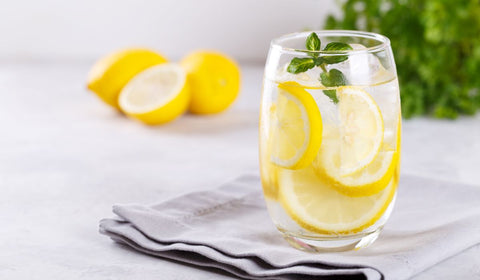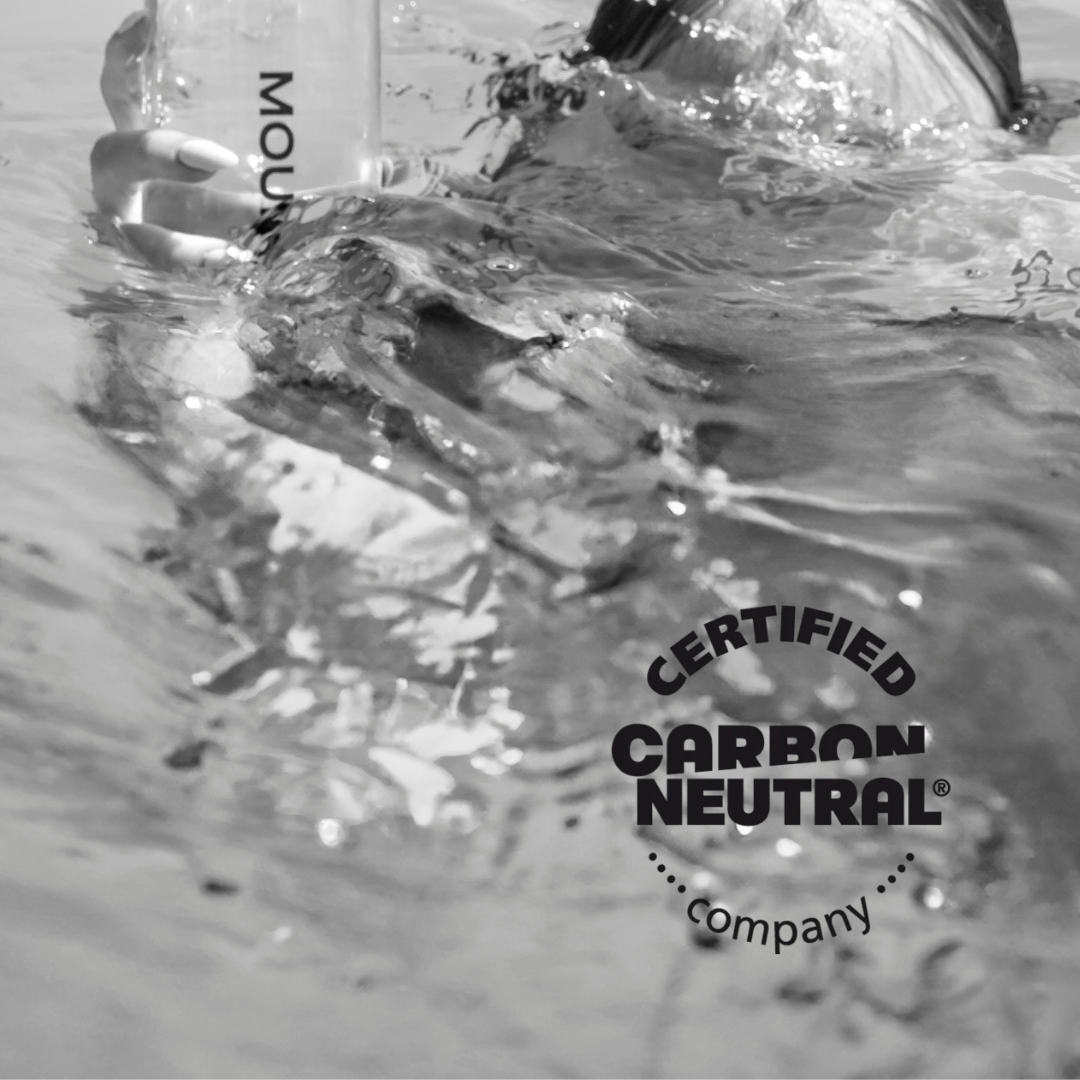Water's the lifeblood of our daily routines, yet it's easy to overlook the simplicity and purity of a glass of still water. With the hustle and bustle of work life, staying hydrated is a must, and reaching for that recommended 4 to 6 cups a day is non-negotiable for maintaining health and vitality.
But what's in a sip of still water? It's more than just H2O; it's a connection to nature, a drink from the Earth's own resources. From tap to spring, this clear elixir comes in many forms, each with its own journey from source to bottle. Let's dive into the world of still water and discover why it's the ultimate everyday choice for keeping us refreshed and replenished.
What Is Still Water?
When exploring the realm of hydration, we often hear about the virtues of still water. But what exactly defines still water? Still water is water in its most natural, non-carbonated state. Unlike sparkling water, which dances with bubbles due to dissolved carbon dioxide, still water maintains a calm and smooth consistency. This characteristic makes it an unaltered refreshment that's easily accessible and generally preferred for everyday hydration.
The variants of still water are plentiful, but they all share a fundamental quality: the absence of fizz. Whether you're filling a glass from the kitchen tap or cracking open a bottle sourced from a remote spring, you're encountering still water. Spring water specifically, comes with a pedigree of being collected from a natural spring, where it emerges from the earth already filtered and packed with minerals. Our still water follows this journey, originating from a pristine spring, ensuring that what I drink is as pure as nature intended.
It's important to stress the safety aspect of consuming still water. Not all sources are equal, and with water being a crucial daily requirement, ensuring it's free from contaminants is paramount. That's where proper testing and filtration come into play. Whether sourced from taps or natural springs, I always make sure my still water is subject to rigorous quality checks.
In the workplace, water isn't just for quenching thirst. It's a tool for wellbeing, assisting in temperature regulation and keeping bodily functions operating at their best. The simplicity of still water lends itself perfectly to these tasks, making it an indispensable ally in maintaining health and productivity throughout the workday.
As part of our daily intake, I recognise the importance of variety. While some may find meeting the recommended 4 to 6 cups a challenge, still water can serve as a foundation for hydration, complemented by sparkling alternatives to keep things interesting. But at its core, whether still or carbonated, water serves one essential purpose - keeping us alive and thriving.
Benefits of Drinking Still Water
Hydration
When it comes to staying hydrated, still water is unmatched in its effectiveness. The human body is composed of about 60% water, which highlights the importance of hydration. I can confidently state that reaching for a glass of still water is the best way to quench my thirst and help maintain my body's fluid balance. This is especially crucial after activities that deplete my body's water stores, such as a rigorous workout, a long day out in the sun, or indulging in salty snacks.
Furthermore, water is not just about drinking when I'm thirsty—it's a preventive measure. By regularly consuming still water, I'm actively preventing dehydration, which can lead to headaches, lethargy, and concentration difficulties. The recommended daily water intake varies, but guidelines suggest 4 to 6 cups a day to maintain optimum hydration levels. It’s worth noting that this simple liquid is free from calories, sugar, and additives that are often found in other beverages, which could potentially harm my overall health.
Digestion and Detoxification
Digestion is a complex process that depends significantly on proper hydration. Water helps to dissolve fats and soluble fiber, allowing these substances to pass through my body more easily. Adequately hydrated, I find that my digestive system functions more efficiently, reducing the risk of constipation and aiding in nutrient absorption.
Detoxification is another pivotal role played by still water. It assists in flushing toxins out of my body, mainly through the kidneys. By regularly drinking clean, filtered still water, I am supporting my kidneys in filtering waste from my blood and eliminating it through my urine. Here's an interesting fact: Adequate water intake prevents kidney stones and shields my body from urinary tract infections.
Moreover, the water I choose to drink matters. While distilled water is devoid of minerals and contaminants, I prefer water that retains essential minerals like magnesium, calcium, and potassium, which naturally occur in spring water. These minerals are beneficial for my health and can contribute to meeting my daily nutrient requirements. It's clear to me that still water is more than just a thirst quencher—it's a fundamental component in supporting my body's digestive and detoxification processes.
Different Types of Still Water
When discussing hydration, it's essential to understand that there's more to the story than just picking up a glass of water and taking a sip. Still water may seem uncomplicated, but there's a fascinating array of types each with its own characteristics. Here I'll dive into the different types of still water that are part of our daily lives.
Natural Still Water
Natural still water is just as it sounds: water that's non-carbonated and sourced from nature's bounty. This type of water flows from underground springs or can be collected as rainfall before having any human-made processes applied to it. Natural still water is often synonymous with purity, but it's important to note that not all naturally occurring water is safe to drink without proper filtration.
Is Spring Water the Same as Still Water?
Spring water is a popular type of natural still water and it's a question I often encounter: is spring water the same as still water? The answer is yes - spring water is a form of still water. Spring water comes from a natural underground source and flows to the surface on its own. It's renowned for containing a variety of minerals that it collects as it traverses through rock layers. These minerals, including magnesium and calcium, are what give spring water its refreshing taste and can contribute to our daily mineral intake.
Purified Still Water
Purified still water describes water that has been mechanically filtered or processed to remove impurities. Unlike natural still water, purified water comes from either a natural or a municipal source and is treated to meet drinking water standards. Typically, it has undergone one or more of several processes, such as carbon filtering, micro-porous filtration, or ultraviolet oxidation.
Distilled Water
Distilled water takes purification a step further. It's the result of boiling water and then condensing the collected steam back into a liquid. This process removes impurities and minerals, leading to water that is in its most stripped-down form.
What Is the Difference Between Still Water and Distilled Water?
It's important to clear up the common confusion between still and distilled water. While all distilled water is still, meaning it lacks carbonation, not all still water is distilled. The primary difference lies in the composition: distilled water is devoid of all minerals due to the distillation process. In contrast, natural still water, and even many purified waters, retain beneficial minerals. Distilled water's lack of minerals gives it a flat taste and it's often used in applications where mineral content could interfere, such as in laboratory settings or automotive cooling systems.
As we navigate through the various types of still water available, it's important to understand not only where our water comes from but also how it's processed. This knowledge can help in making informed decisions about the water we choose to drink and use in our daily lives.
Choosing the Right Still Water for You
Mineral Content
When I'm selecting a still water, I always pay attention to the Mineral Content. It's common knowledge that water is vital for transporting nutrients to our cells and oxygen to our brain. However, it's the higher mineral content in certain still waters that can truly bolster my daily nutrient intake. Studies have supported that spring water inherently contains varied levels of minerals like magnesium, potassium, calcium, and sodium, which are all crucial for maintaining a healthy body.
Engaging in regular consumption of mineral-rich water allows my body to potentially meet some of its nutrient requirements through hydration itself. Mountain Falls spring water, for example, has been a favourite of mine as its natural composition is rich in these essential minerals. Not all still waters have the same Total Dissolved Solids (TDS), a measure that reflects the amount of minerals and salts in water. Waters with a high TDS can provide the additional benefit of these vital nutrients.
pH Level
The next factor I consider is the pH Level of the water. A neutral pH sits at around 7 on the scale, but different types of water can have varying pH levels. More alkaline water means a higher pH, and with many modern diets leaning towards acidic, I've found that choosing a naturally alkaline water can have a balancing effect on my body’s pH levels. The natural alkaline pH of Mountain Falls mineral water at 7 has always intrigued me, as it stands above neutral and adds to its unique properties.
Although the health perks of drinking alkaline water might need more research for conclusive facts, opting for a water with a higher pH like Mountain Falls Mineral Water can help in not just hydrating but also in supporting the body's natural desire to maintain balance.
Packaging and Sustainability
Lastly, but certainly not of least importance, is the Packaging and Sustainability of the water. In today's world, it's critical to choose products that not only serve my needs but are also gentle on the environment. Water brands that offer recyclable packaging or use materials from sustainable sources stand out to me. With the planet facing pressing environmental challenges, I find it important to support brands that are actively working on reducing their carbon footprint through innovative packaging solutions.
Size options are not just a matter of convenience but also of sustainability. For example, Mountain Falls offers varied sizes from small 500ml bottles for the on-the-go lifestyle to larger 1.5L and 5L containers more suited for home use. By selecting the size that fits my day’s needs, I can better manage my consumption and minimise waste, playing a part in environmental stewardship. Whether it's for personal use, sporting events, or keeping kids hydrated, I always make sure to factor in the overall impact my choice might have on the environment.
The Importance of Still Water in Daily Life
Drinking Water for Weight Loss
I've found that including still water as a key element in weight loss strategies can significantly aid the process. Drinking water boosts metabolism, cleanses the body of waste, and acts as an appetite suppressant. In fact, drinking water before meals can lead to reduced calorie intake for middle-aged and older individuals. This simple act makes water an easy and effective weight management tool as it can help reduce overall caloric consumption. What's more, replacing sugary drinks with water cuts down unnecessary sugar and enhances hydration, which is crucial for burning fat.
Promoting Healthy Skin
Staying hydrated with still water is vital for maintaining healthy skin. Water replenishes skin tissues, moisturises, and increases elasticity. When my skin is well-hydrated, it looks more vibrant and plump. Regular consumption of water can help combat a variety of skin issues including dryness, wrinkles, and spots. Like me, many may notice that with adequate water intake, their skin not only feels better but also gains a healthy, radiant glow naturally.
Maintaining Overall Health
When I mention overall health, water is invariably a fundamental aspect. It's no secret that water is essential for survival, but its role extends to several key functions of the body. The table below shows how water intake affects various health aspects:
| Health Aspect | Effect of Water Intake |
|---|---|
| Nutrient Distribution | Carries essential nutrients to all cells |
| Cognitive Function | Vital for oxygen supply to the brain |
| Internal Temperature Regulation | Aids in maintaining a consistent body temperature |
| Waste Removal | Essential for flushing out toxins |
| Blood Pressure | Helps in maintaining normal blood pressure |
| Airway Function | Necessary for the proper functioning of airways |
| Kidney Health | Prevents kidney damage and stones |
By hydrating with still water, I can ensure these vital bodily functions operate effectively. Moreover, the absence of calories, sugars, or additives in still water makes it a pure and simple choice for hydration compared to other beverages, supporting a healthier lifestyle.
Conclusion
I've delved into the myriad benefits that still water brings to the table and I can't stress enough its role in a healthy lifestyle. It's not just about quenching thirst; it's about supporting your body's natural processes from digestion to detoxification. Adopting water as a mainstay in your diet could be the game-changer for weight management and skin health. Remember, every sip contributes to your overall well-being ensuring that your body functions smoothly. So next time you reach for a drink, make it still water – your body will thank you for it.
Frequently Asked Questions
What does still water do for your body?
Still water plays a vital role in hydrating the body, ensuring fluid balance, aiding digestion, and facilitating detoxification processes. Additionally, it supplies essential minerals necessary for bodily functions.
Can still water help in weight loss?
Yes, drinking still water before meals can lead to a reduction in calorie intake and replace high-calorie, sugary drinks, aiding in weight management and weight loss efforts.
How does still water contribute to healthy skin?
Staying hydrated with still water is crucial for replenishing skin tissues, providing moisture, and enhancing skin elasticity, which in turn promotes a healthier, more vibrant complexion.
Is still water better for hydration than other beverages?
Still water is considered one of the most effective drinks for hydration. Unlike sugary or caffeinated beverages, it hydrates without extra calories or substances that can be dehydrating.
What health functions does water intake affect?
Water intake is critical for a multitude of health functions including nutrient transportation, cognitive performance, temperature regulation, waste removal, blood pressure stability, airway function, and maintaining kidney health.







